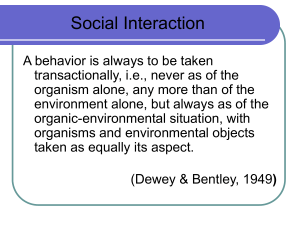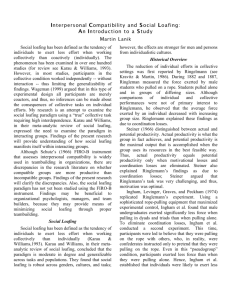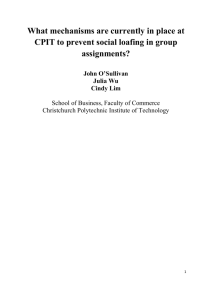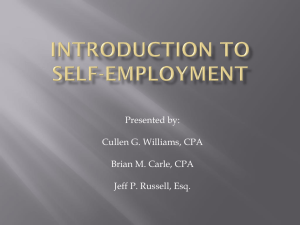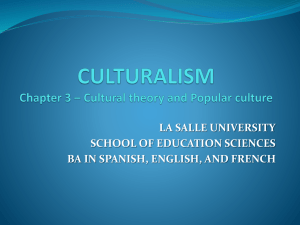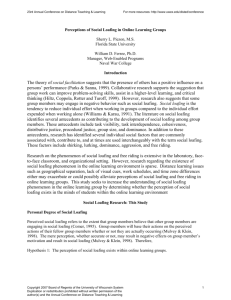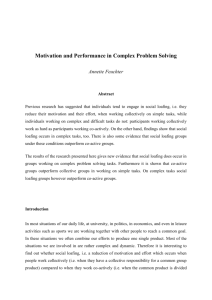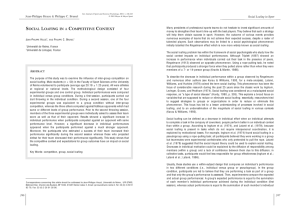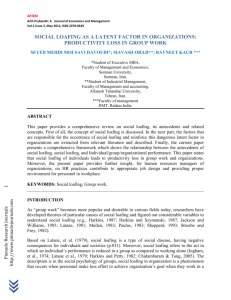Social Loafing and Expectancy
advertisement
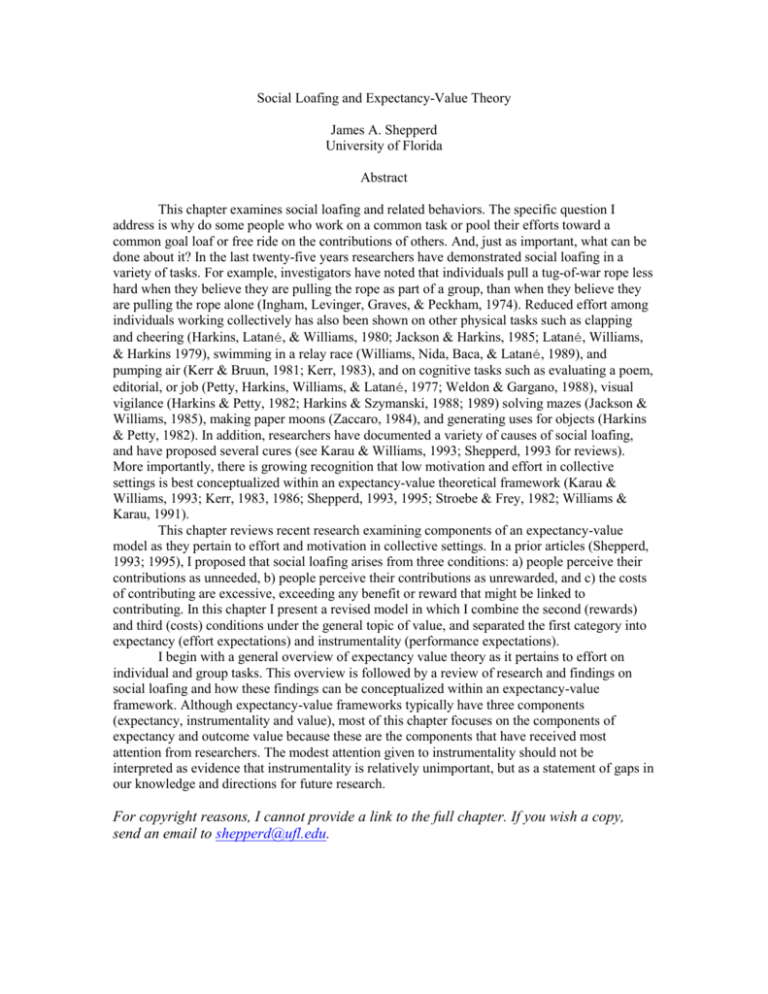
Social Loafing and Expectancy-Value Theory James A. Shepperd University of Florida Abstract This chapter examines social loafing and related behaviors. The specific question I address is why do some people who work on a common task or pool their efforts toward a common goal loaf or free ride on the contributions of others. And, just as important, what can be done about it? In the last twenty-five years researchers have demonstrated social loafing in a variety of tasks. For example, investigators have noted that individuals pull a tug-of-war rope less hard when they believe they are pulling the rope as part of a group, than when they believe they are pulling the rope alone (Ingham, Levinger, Graves, & Peckham, 1974). Reduced effort among individuals working collectively has also been shown on other physical tasks such as clapping and cheering (Harkins, Latané, & Williams, 1980; Jackson & Harkins, 1985; Latané, Williams, & Harkins 1979), swimming in a relay race (Williams, Nida, Baca, & Latané, 1989), and pumping air (Kerr & Bruun, 1981; Kerr, 1983), and on cognitive tasks such as evaluating a poem, editorial, or job (Petty, Harkins, Williams, & Latané, 1977; Weldon & Gargano, 1988), visual vigilance (Harkins & Petty, 1982; Harkins & Szymanski, 1988; 1989) solving mazes (Jackson & Williams, 1985), making paper moons (Zaccaro, 1984), and generating uses for objects (Harkins & Petty, 1982). In addition, researchers have documented a variety of causes of social loafing, and have proposed several cures (see Karau & Williams, 1993; Shepperd, 1993 for reviews). More importantly, there is growing recognition that low motivation and effort in collective settings is best conceptualized within an expectancy-value theoretical framework (Karau & Williams, 1993; Kerr, 1983, 1986; Shepperd, 1993, 1995; Stroebe & Frey, 1982; Williams & Karau, 1991). This chapter reviews recent research examining components of an expectancy-value model as they pertain to effort and motivation in collective settings. In a prior articles (Shepperd, 1993; 1995), I proposed that social loafing arises from three conditions: a) people perceive their contributions as unneeded, b) people perceive their contributions as unrewarded, and c) the costs of contributing are excessive, exceeding any benefit or reward that might be linked to contributing. In this chapter I present a revised model in which I combine the second (rewards) and third (costs) conditions under the general topic of value, and separated the first category into expectancy (effort expectations) and instrumentality (performance expectations). I begin with a general overview of expectancy value theory as it pertains to effort on individual and group tasks. This overview is followed by a review of research and findings on social loafing and how these findings can be conceptualized within an expectancy-value framework. Although expectancy-value frameworks typically have three components (expectancy, instrumentality and value), most of this chapter focuses on the components of expectancy and outcome value because these are the components that have received most attention from researchers. The modest attention given to instrumentality should not be interpreted as evidence that instrumentality is relatively unimportant, but as a statement of gaps in our knowledge and directions for future research. For copyright reasons, I cannot provide a link to the full chapter. If you wish a copy, send an email to shepperd@ufl.edu.
